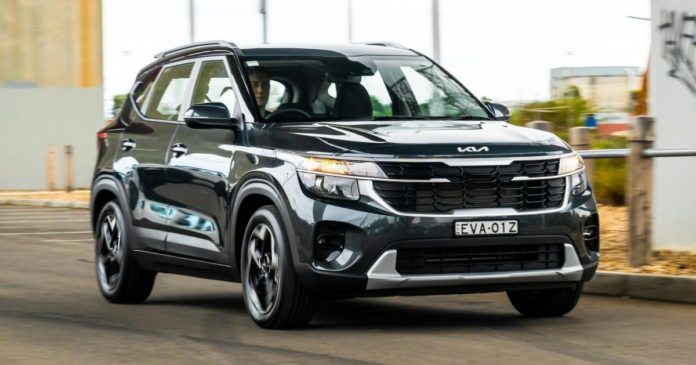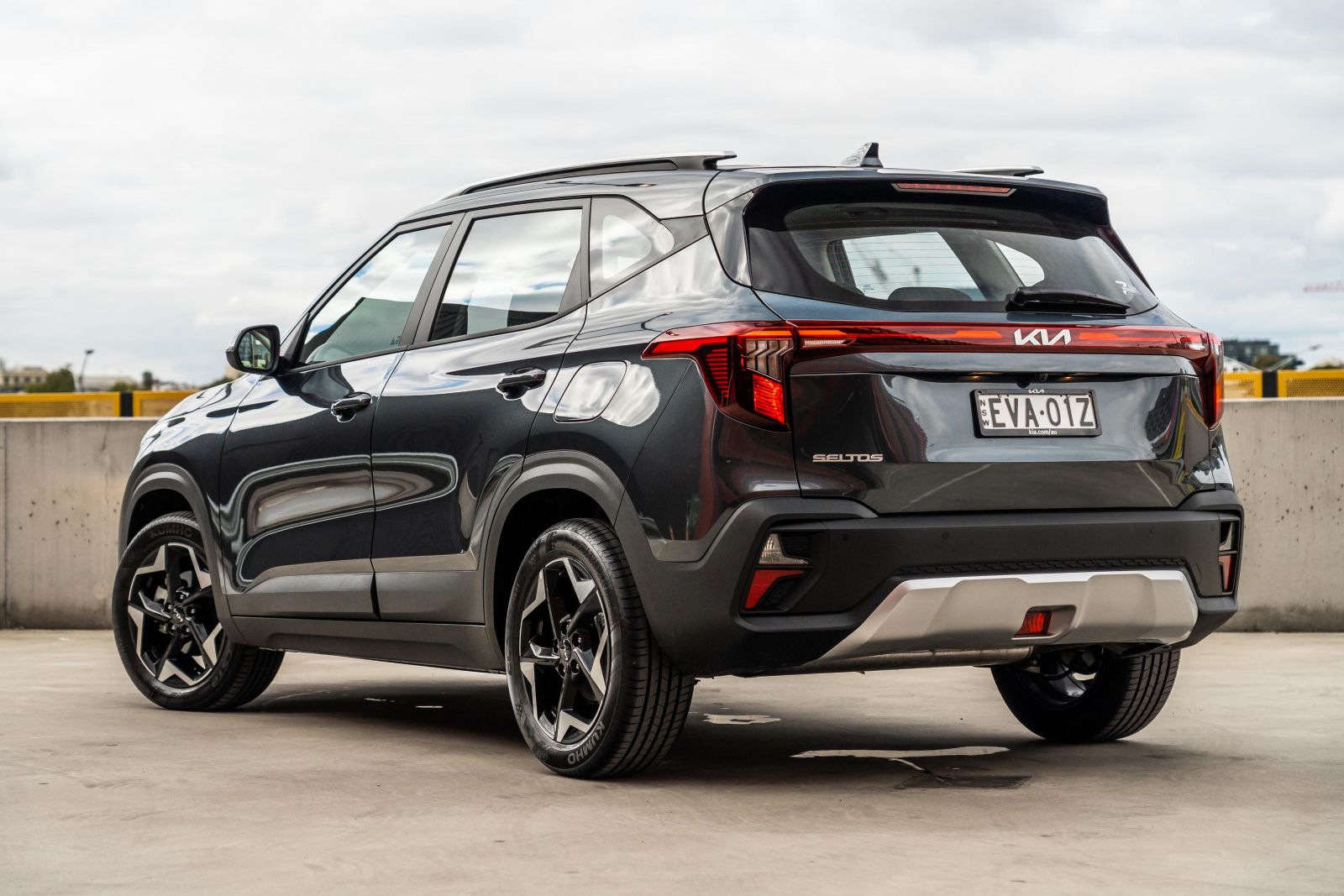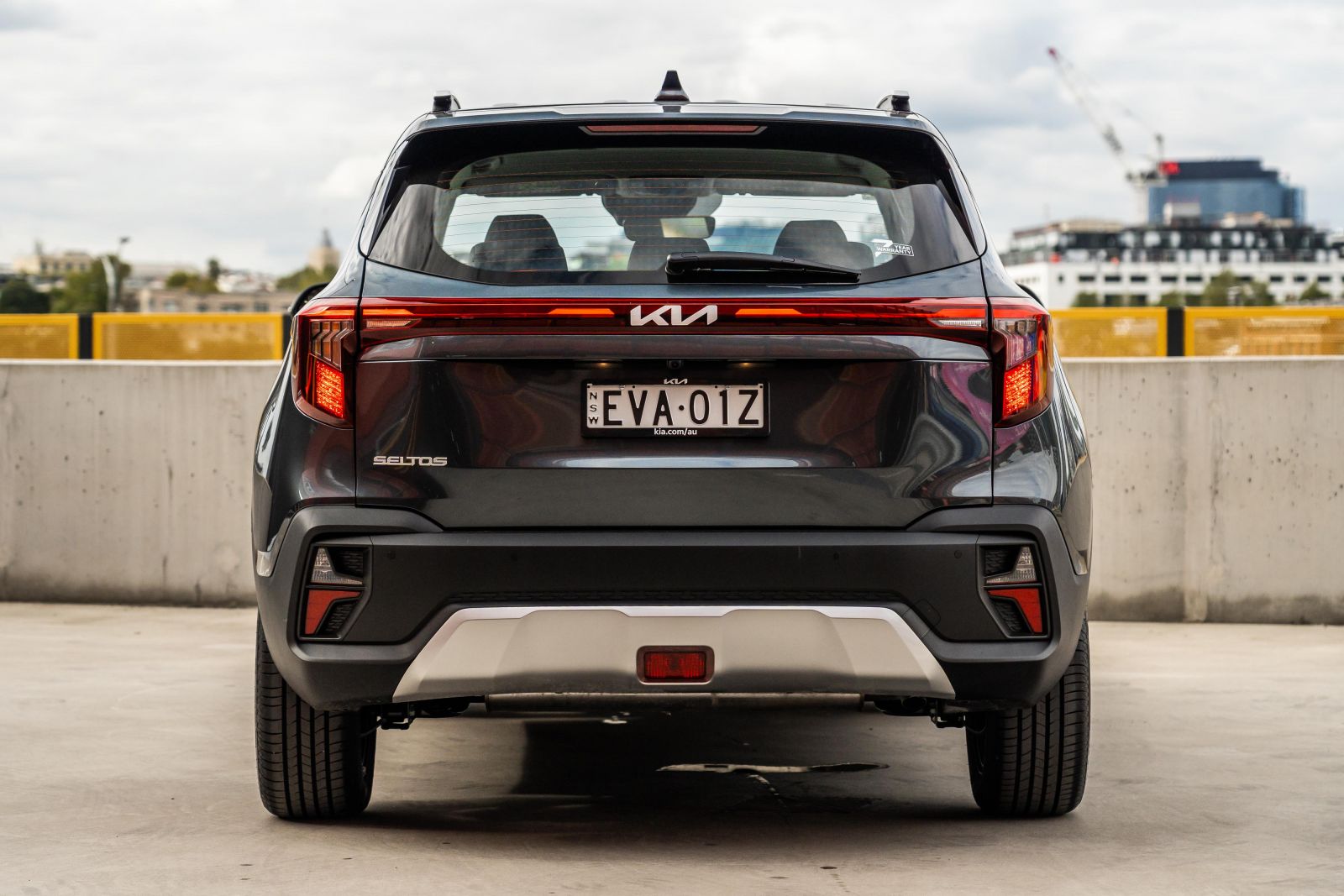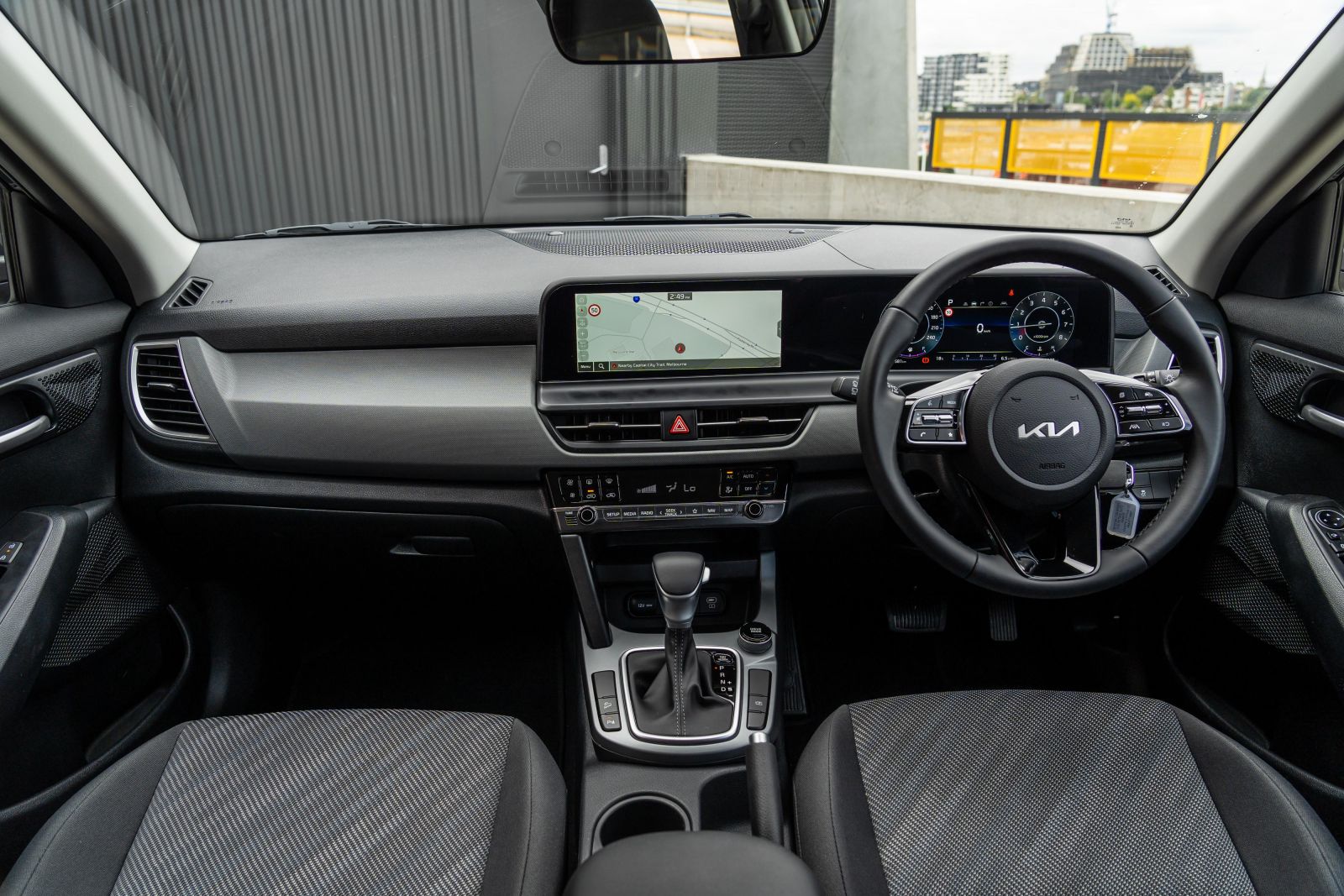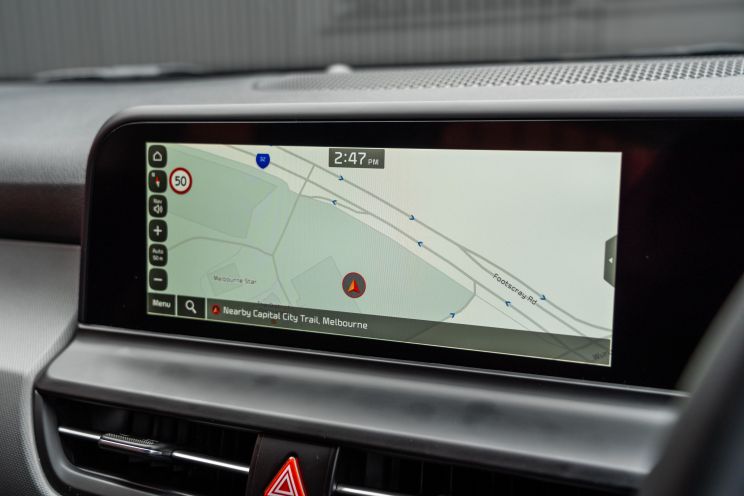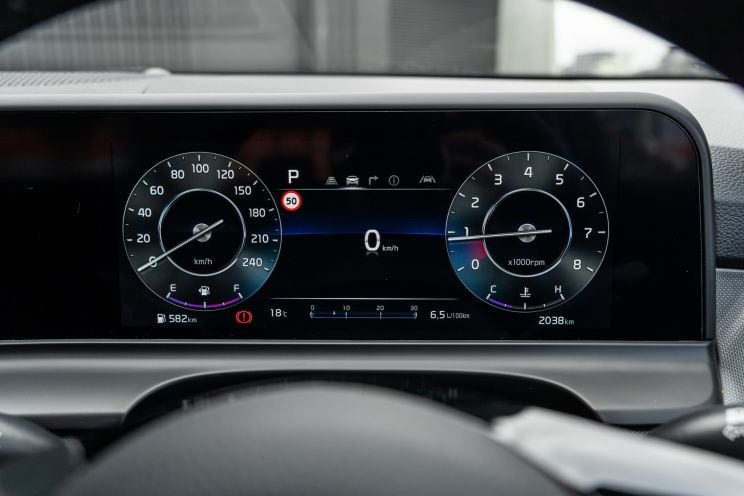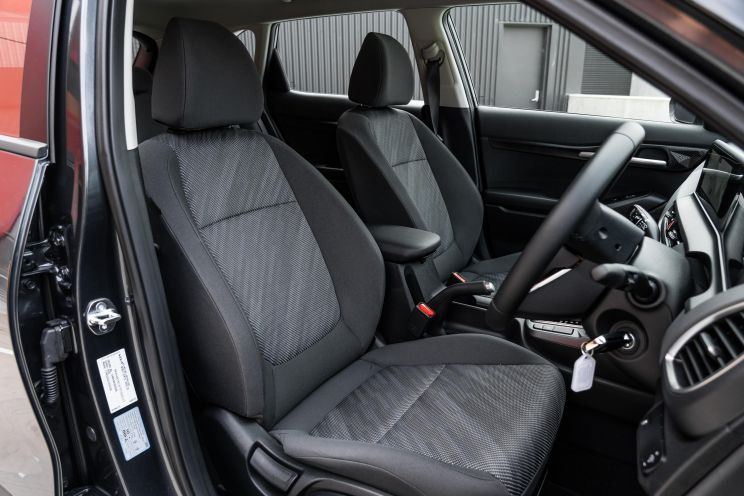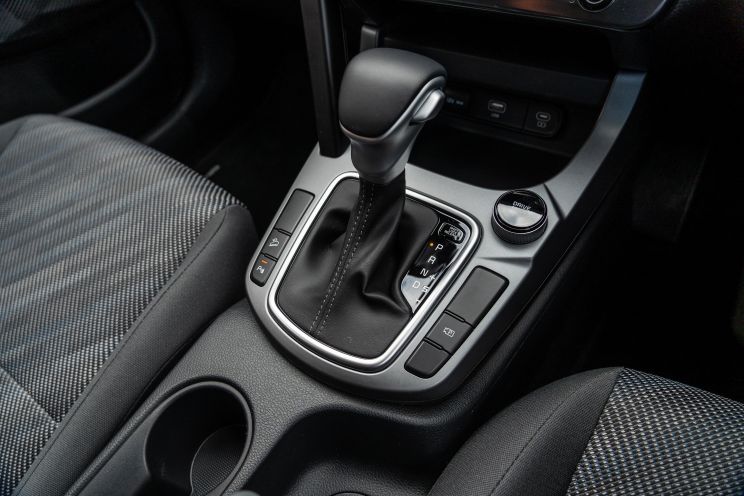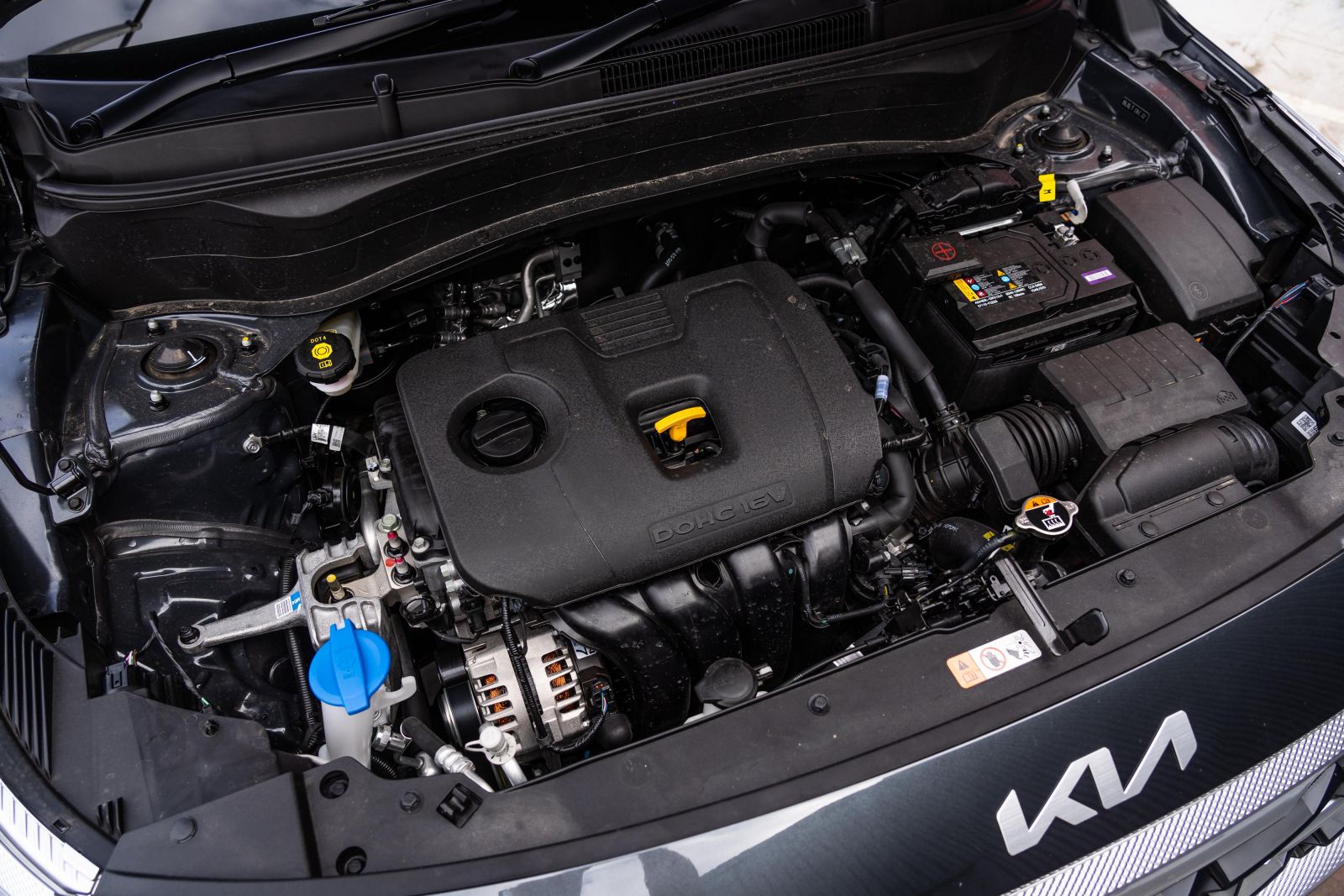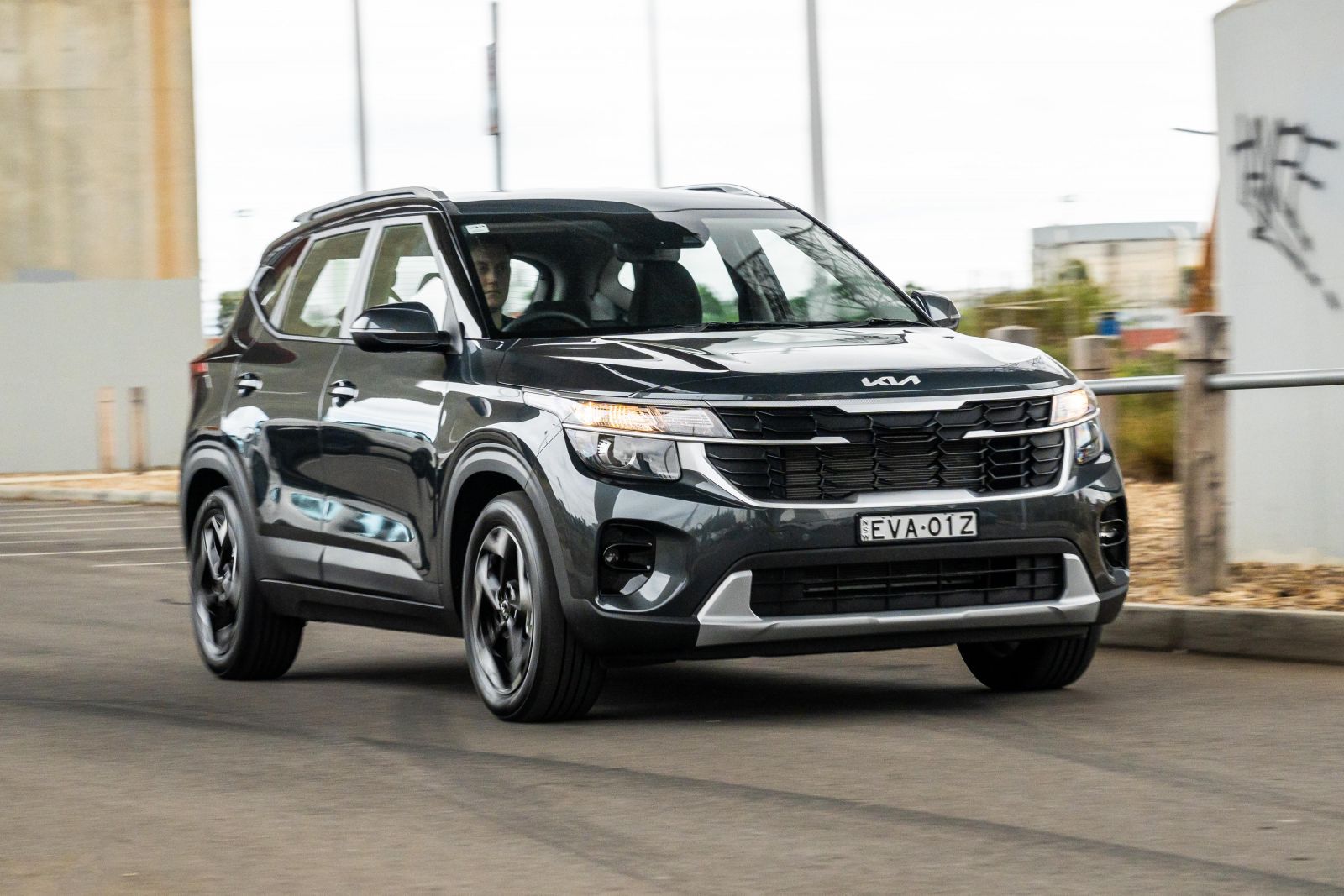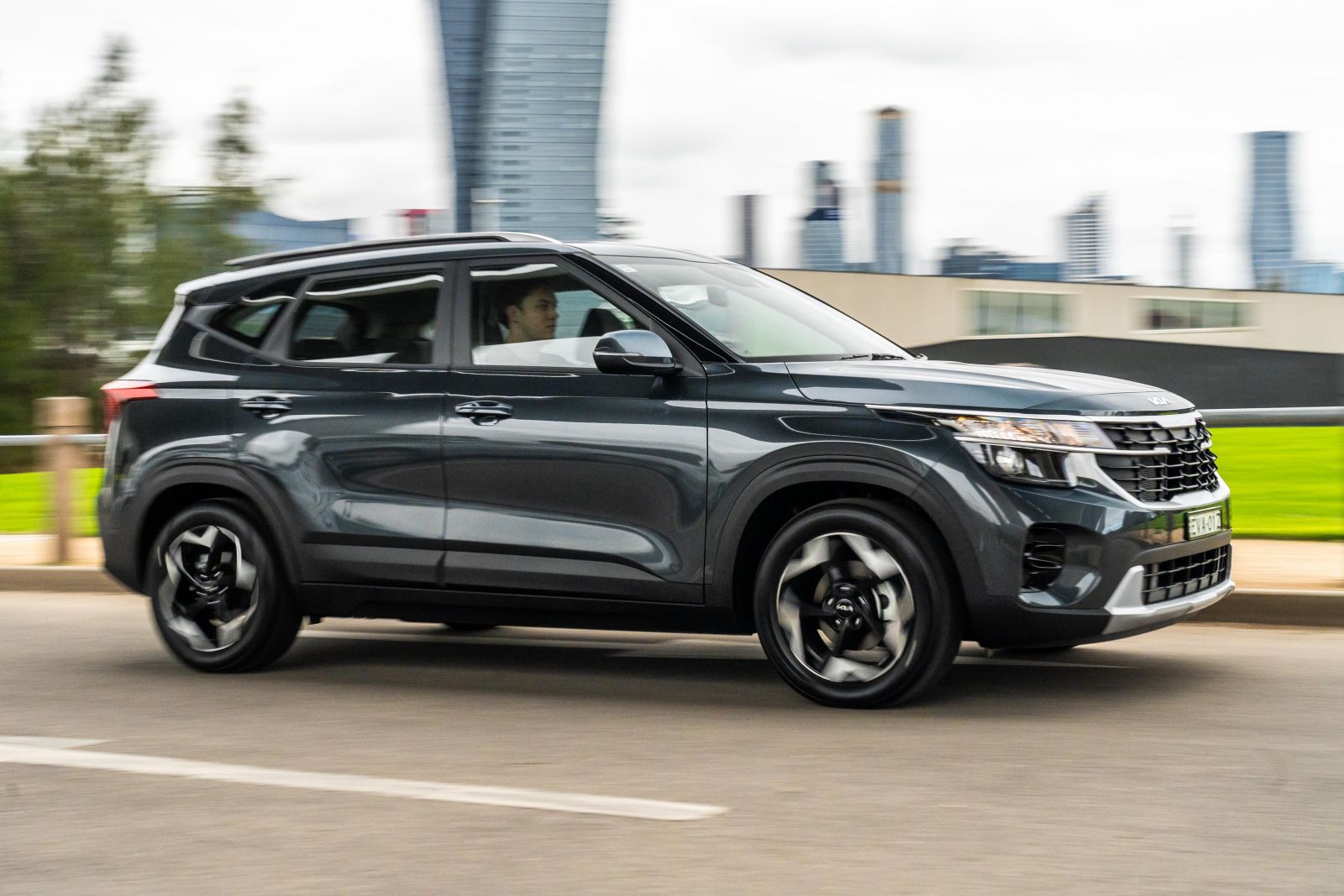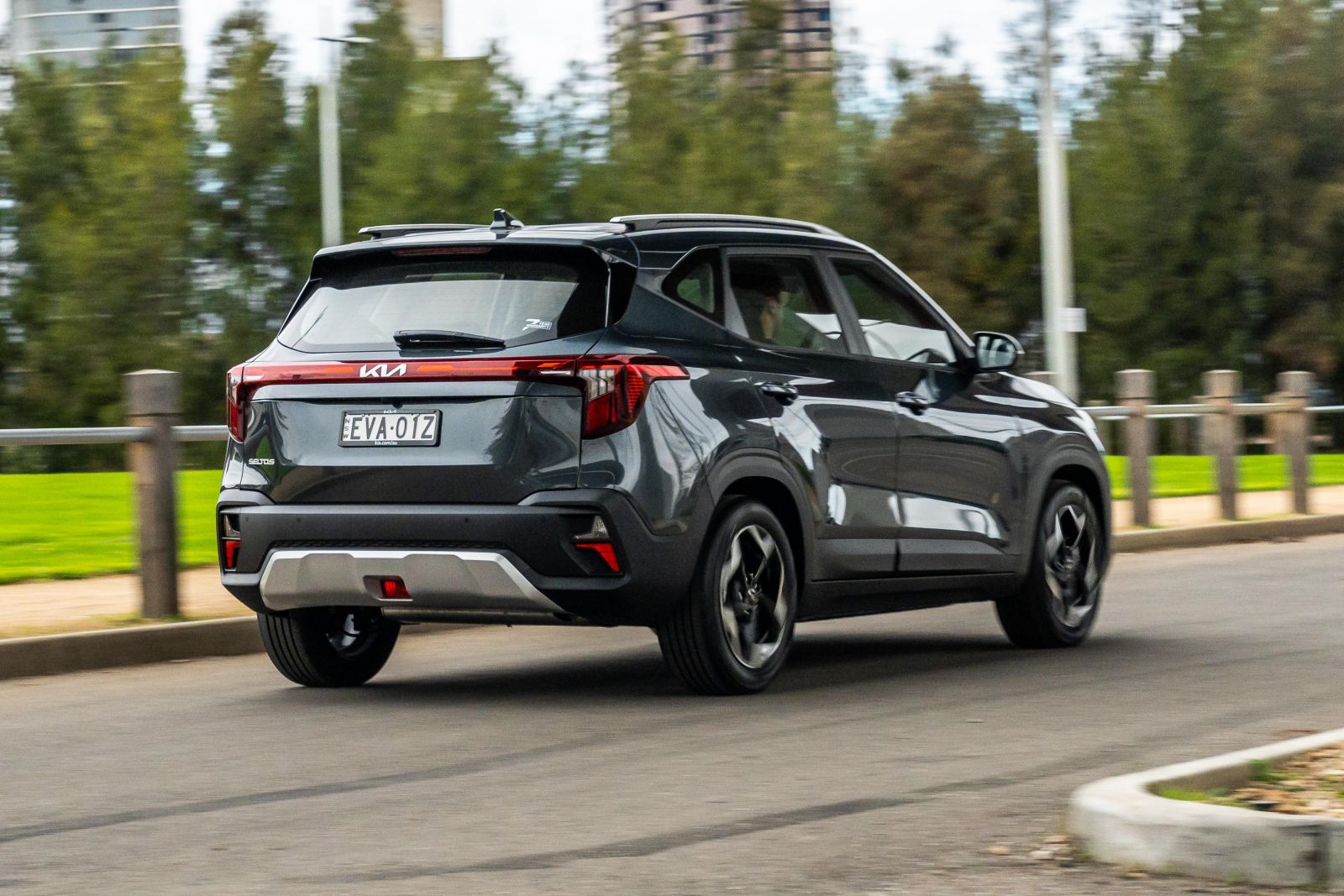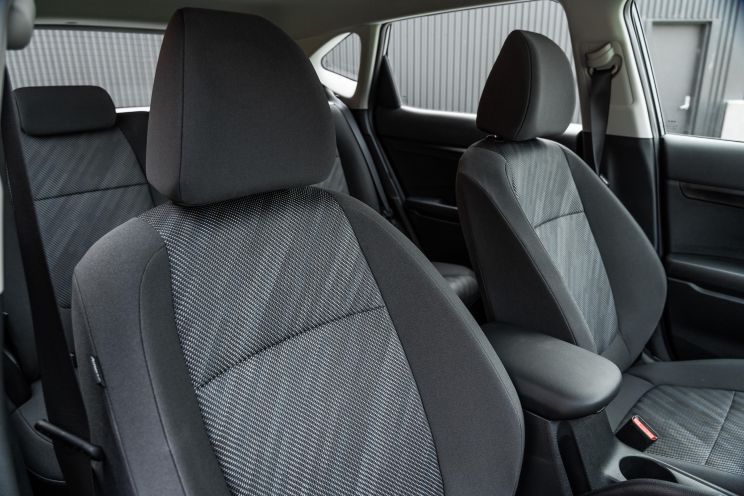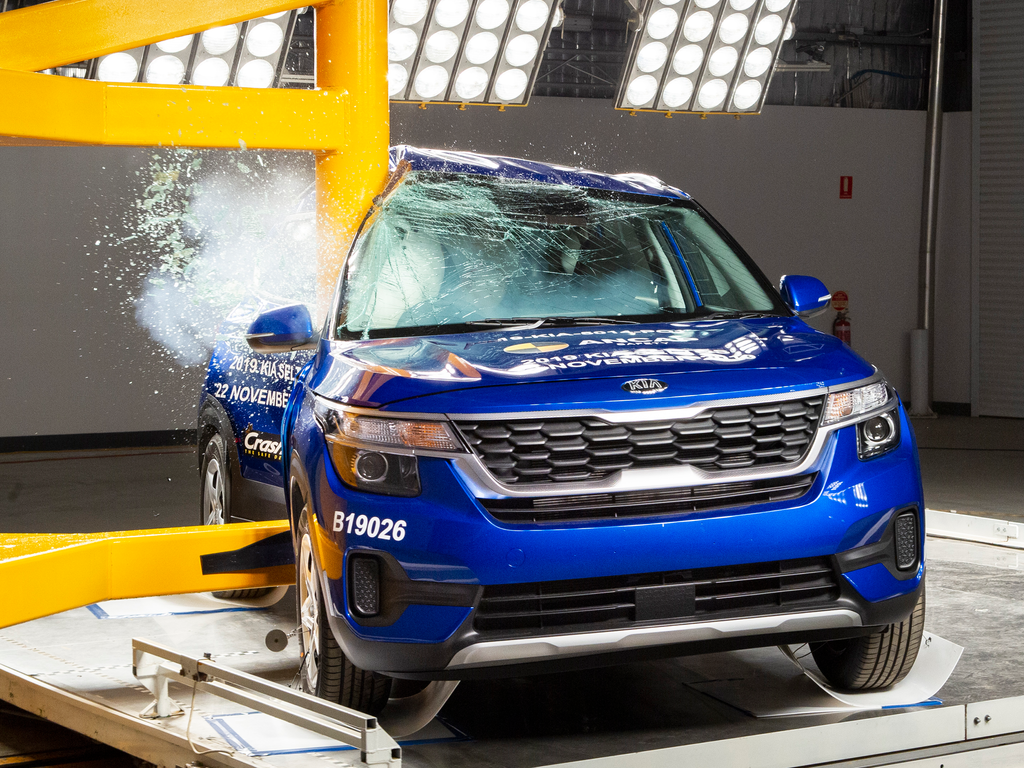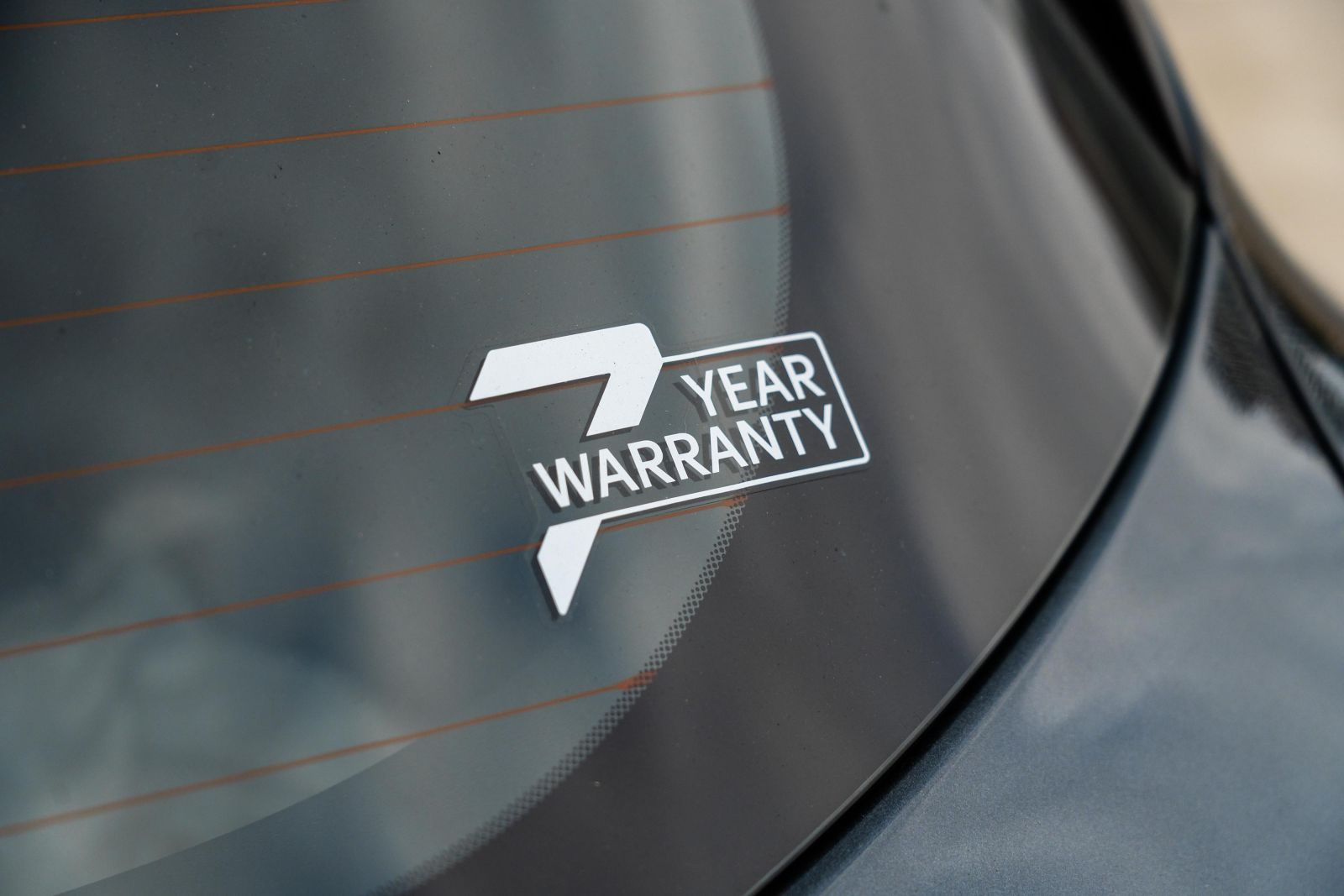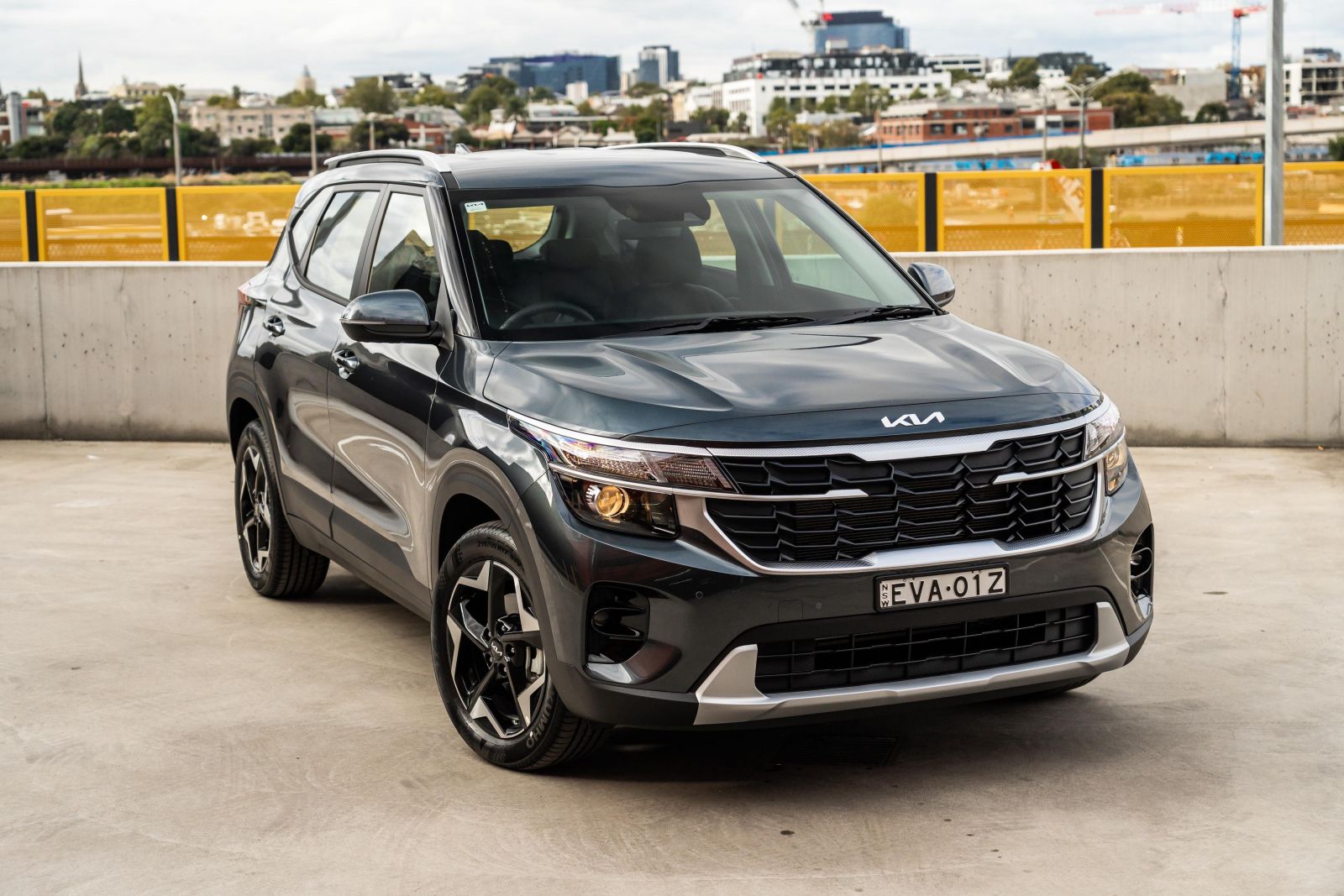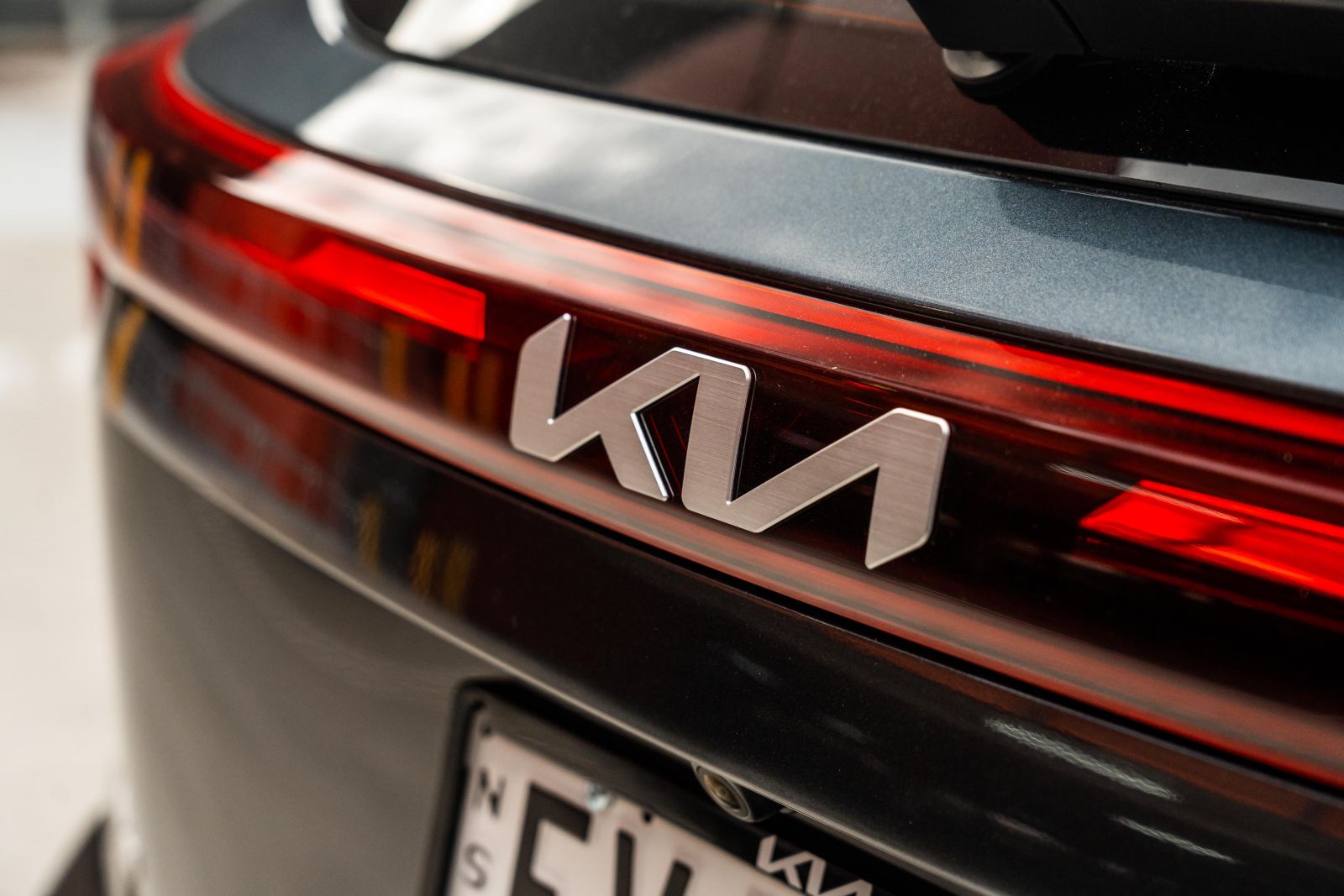So you want a Kia Seltos but you know you don’t need the sportier turbo engine? Good for you.
You also realise that you don’t need all the equipment that comes in the higher-grade versions? Or maybe just can’t justify the cost? That’s cool, too.
This review should help you figure out if the 2023 Kia Seltos Sport 2.0 FWD is the right version of this popular small SUV for you – I’ll give you some context as to what it costs compared to other variants, and what you get for your money.
Plus I’ll cover off why this powertrain could be all the engine you need if you’re interested in a Seltos.
How much does the Kia Seltos Sport 2.0 FWD cost?
You can get into a Seltos Sport from $32,700 before on-road costs.
If you did happen to want the turbo engine and all-wheel drive, you’re going to need to shop up to the Sport+ grade, and even then you’re looking at almost $40k before on-roads for it.
So, this Sport grade shares the same engine as you’d get if you bought the most affordable Seltos S ($29,500), and either of the higher-spec models can be had with this engine-transmission combo, too. More info on the specs/outputs can be found below.
For a bit more context for where the Sport sits in the range, see the below price lists.
2023 Kia Seltos pricing:
- Kia Seltos S 2.0 FWD: $29,500
- Kia Seltos Sport 2.0 FWD: $32,700
- Kia Seltos Sport+ 2.0 FWD: $35,800
- Kia Seltos Sport+ 1.6T AWD: $39,300
- Kia Seltos GT-Line 2.0 FWD: $41,500
- Kia Seltos GT-Line 1.6T AWD: $44,900
Prices exclude on-road costs
Kia also offers nationwide drive-away pricing:
- Kia Seltos S 2.0 FWD: $31,690
- Kia Seltos Sport 2.0 FWD: $35,390
- Kia Seltos Sport+ 2.0 FWD: $38,490
- Kia Seltos Sport+ 1.6T AWD: $41,990
- Kia Seltos GT-Line 2.0 FWD: $44,590
- Kia Seltos GT-Line 1.6T AWD: $47,690
What is the Kia Seltos Sport 2.0 FWD like on the inside?
The Sport has a few really nice features inside, but misses out on the nicer trim of the higher-spec models, which get either fake or real leather trimming in parts.
The Sport instead has a cloth trim, which looks nice and is comfy enough, but won’t be as easy to keep clean if you have a grubby kid like I do.
Even so, just like the higher spec models, the Sport has a nice interior design that mirrors its bigger Sportage and Sorento siblings, including a new all-digital cockpit with twin 10.25-inch displays.
The screen in the middle of the dashboard is obviously for your infotainment and media, while the driver gets their own display with a speed readout, trip computer, rev meter and more. It certainly is a nice step up from the pre-facelift Seltos.
There’s also Kia Connect, which includes internet connected navigation and voice assistance. And, there is Apple CarPlay and Android Auto, but because this spec has satellite navigation, it means the smartphone mirroring tech is only usable when plugged in. The base model S has wireless smartphone mirroring because it doesn’t have navigation.
The displays are pretty easy to get used to, and you will need to learn a sequence through either of them if you want to disable to unendingly frustrating speed limit recognition system, which will beep every single time it detects that the speed zone has changed, and then repeatedly bing at you if you happen to drive over the limit – have you ever really driven at 5km/h in a Westfield car park? It’s almost impossible!
The row of physical controls below the media screen are great, and mean you can simply adjust air-con (single-zone air-con) or media controls without mucking around with everything being through the screen.
Speaking of physical controls, this grade still has a regular keyfob, so you have to press the button on it to unlock the doors and insert the key into the barrel to start the car.
You’d be amazed how old-school that feels when you’re so used to driving new cars that have keyless smart entry and push-button start, both of which are ridiculously underappreciated until you don’t have them.
As a dad with a youngster who still needs to be carried to and from the car, having that peace of mind of just being able to approach the car and unlock the door and start it without having to fumble in your pocket (or backpack, handbag, bumbag, whatever) to find the key cannot be understated.
Cabin storage is decent for loose items, including a pair of cupholders between the front seats, a small wallet-sized cubby, and a deep tray with a shelf on top with USBs nearby. There are bottle holders in all four doors, but this grade doesn’t get a flip-down armrest with cupholders (Sport+ and GT-Line do).
There are directional air vents, but no map pockets. At least there are USB-C charge points as standard with a small storage tub below them, and decent door pockets with bottle holders.
The window seats have ISOFIX child-seat anchor points, and there are three top-tether hooks. If you need to, it will accommodate two child-seats in, plus parents of very young ones will be able to fit a rearward-facing capsule without causing too much discomfort to those ahead.
Two adults will easily fit in the back seat, and you could fit three across if they’re not huge people. Leg room and head room is terrific for a small SUV – at 6’0” or 182cm, I could easily fit behind my own driving position.
When it comes to boot space, the Seltos has a huge cargo capacity compared to rivals. There’s 433 litres of volume available, and there’s a full-size spare wheel too. Choose the S base model and you get 468L but a space-saver spare.
If you need more space for an IKEA or Bunnings run, there’s 1428L on offer with the seats folded down.
Weirdly though, only the top-spec model comes with a parcel shelf or cargo cover.
What’s under the bonnet?
The Sport is only available with Kia’s 2.0 MPi motor, which is a non-turbocharged petrol four-cylinder engine producing 110kW (6200rpm) and 180Nm (4500rpm).
It is mated exclusively to a continuously variable transmission (CVT) automatic, and is front-wheel drive.
As mentioned, the other engine is the 1.6-litre turbocharged four-cylinder T-GDi petrol engine, with 146kW of power (6000rpm) and 265Nm (1600-4500pm).
It comes with a new eight-speed auto (replacing the seven-speed dual-clutch auto of the existing model), and has on-demand all-wheel drive.
How does the Kia Seltos Sport 2.0 FWD drive?
I did a review of the Sport+ with the 1.6T AWD option earlier this year, and I thought it was a decent little thing.
However, I stick by my conclusion from that review that I’d be totally fine without the turbo and all-wheel drive, because this non-turbo engine and CVT auto combination is great.
It mightn’t look like it has big power and torque compared to the more-powerful turbo donk, but the way the CVT auto and 2.0-litre four-cylinder work together means it feels gruntier than you might expect.
It isn’t fast, don’t get me wrong, but it’s better than adequate, and certainly feels a damn sight more impressive than a Sportage with its 2.0-litre base petrol engine and six-speed auto.
The CVT has a bit of that expected tendency to sing at high revs when you’re climbing hills or under constant throttle, but it responds decently to sudden acceleration requirements, and the engine isn’t too boomy either – so it’s a pretty pleasant powertrain.
There hasn’t been any additional work done to the ride and handling by Kia Australia to the Seltos for this updated version, but it was tuned for local tastes in the first instance, and it’s still pretty decent.
Ride comfort is mostly good unless you find yourself encountering consistent sharp edges or repetitive bumps. It does a good job of controlling the car over larger lumps and bumps, and is particularly easy going at highway pace.
But as I said with the Sport+, the steering isn’t amazing. It has a bit of a hefty dullness at higher pace. Around town it’s a bit more user friendly, though, with a lightness and predictability that takes the thought out of things.
As mentioned, there’s not a heap of engine noise, but there is some raucousness from the road thrown into the cabin if the surface is coarse-chip.
Just like the other Seltos I drove, the big annoyance for the drive experience is the speed sign recognition system.
After I published a video review of that car on my YouTube channel, I had a few comments from owners who have decided to sell their brand-new Seltos because of that very issue.
I’ve asked Kia Australia if there’s a fix for it, or if they can disable it, and the story is that it’s a global decision, and any move to rollback that software – so you don’t have to do through a sequence of steps to turn the beeping and bonging off every time you drive it – is something that will have to be approved in South Korea.
This isn’t a Seltos-specific issue, either. Hyundai has implemented the same tech across some models (Palisade, for instance) and it really needs to be fixed.
What do you get?
Seltos S highlights:
- 16-inch alloy wheels
- Electric folding side mirrors
- Mirror-mounted side indicators
- Black Matte grille
- Body-coloured door handles
- Halogen headlights, projector type
- Halogen daytime running lights
- Dusk-sensing headlights
- Rear fog light
- Roof rails
- Basic digital instrument cluster
- 4.2-inch multi-function LCD driver display
- Cloth seats
- 6-speaker sound system
- 8.0-inch touchscreen
- Apple CarPlay (wireless)
- Android Auto (wired, wireless)
- Halogen interior lighting
- Rear air vents
- Front, rear USB-C charge ports
- Space saver spare wheel
- Manual air-conditioning
- Drive Mode Select
- incl. Eco, Normal, Sport, Smart
- 12V outlet in front tray
Seltos Sport adds:
- 17-inch alloy wheels
- Front fog lights
- Roof rails
- Solar Glass
- 10.25-inch digital instrument cluster
- 10.25-inch infotainment system
- DAB digital radio
- Kia Connect
- Satellite navigation
- Sounds of Nature
- Wired Apple CarPlay, Android Auto
- Premium steering wheel, shifter
- Auto up/down driver window
- Single-zone climate control
- Auto defog
Seltos Sport+ adds:
- Adaptive cruise control with stop/go
- AEB with Cyclist, Junction assist
- Auto-dimming rear-view mirror
- Cloth/leatherette seat trim
- Driver Attention Alert
- Electronic park brake incl. Auto Hold
- Heated electric side mirrors
- LED interior lighting
- Lead Vehicle Departure Alert
- Rear centre arm rest
- Rear privacy glass
- Smart key, push-button start
Seems like the $3100 extra for the Sport+ is a good move, considering you get so many convenience and safety items included for that extra money.
Is the Kia Seltos Sport 2.0 FWD safe?
If you choose the Sport grade, you miss out on some items you might have thought you should get when you’re paying this kind of money for a small SUV.
The items you miss out on if you choose the Sport instead of the Sport+ are: AEB with Cyclist and Junction assist, adaptive cruise control with stop/go, and Leading Vehicle Departure Alert.
All of those are radar-based systems, and that means the Seltos in this spec falls behind the likes of the Toyota Corolla Cross and Mazda CX-30, as they offer that stuff range-wide.
However, you still get a fair bit of stuff, and the Seltos is a five-star ANCAP performer based on 2019 testing, no matter which grade you pick.
Standard safety features include:
- 6 airbags
- AEB with Pedestrian detection
- Blind-spot assist
- Rear cross-traffic assist
- High Beam Assist
- Intelligent Speed Limit Assist
- Lane Following Assist
- Lane keep assist
- Safe Exit Warning
- Front, rear parking sensors
- Reversing camera
- Driver Attention Alert
- Rear Occupant Alet
Seltos Sport adds:
- eCall function via Kia Connect
Seltos Sport+ adds:
- AEB with Cyclist, Junction assist
- Adaptive cruise control with stop/go
- Leading Vehicle Departure Alert
How much does the Kia Seltos Sport 2.0 FWD cost to run?
Kia still offers a strong seven-year, unlimited kilometre warranty, and a seven-year capped price servicing plan with servicing due every 12 months/15,000km for non-turbo models.
Service costs over seven years/75,000km amounts to $2072. Kia also offers up to eight years of roadside assistance.
The Seltos Sport has an official combined cycle fuel use claim of 6.9 litres per 100km. It has a 50-litre fuel tank, and can run on 91 RON regular unleaded.
My testing in the Seltos Sport saw a real-world figure of 7.8L/100km – not too bad.
CarExpert’s Take on the Kia Seltos Sport 2.0 FWD
I can see why you’d be sold on a Kia Seltos, but I don’t think the Sport is the one to pick.
The Sport+ adds so many of the missing elements that it makes a lot more sense if you can justify the extra expense.
If you can’t, and you’re okay missing out on those clever little life-helpers like keyless entry, push-button start, LED headlights, and adaptive cruise control, then you could do a lot worse than the Seltos Sport.
It’s a spacious small SUV, and the lengthy ownership program appears pretty promising.
Click the images for the full gallery
MORE: Everything Kia Seltos

